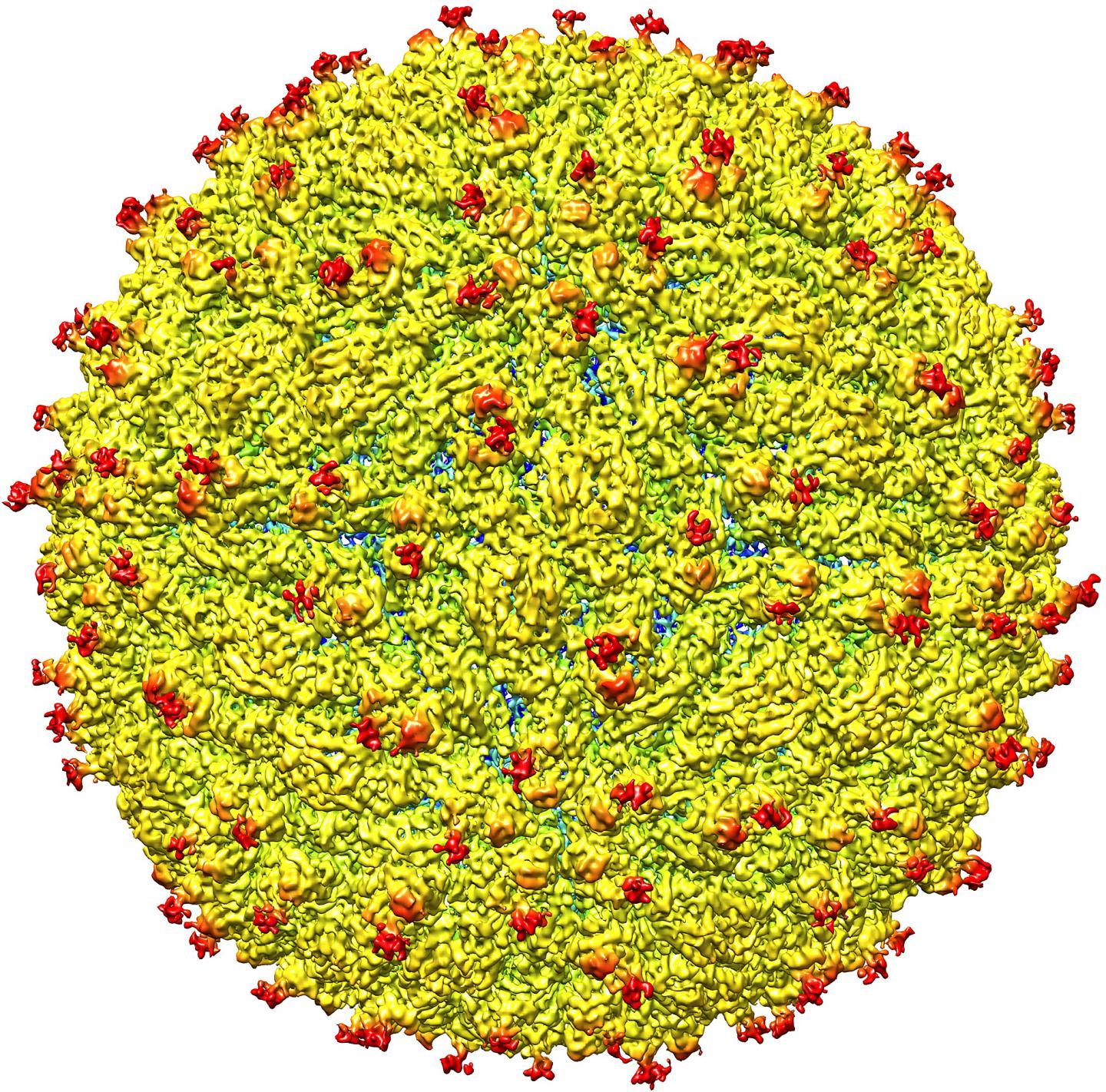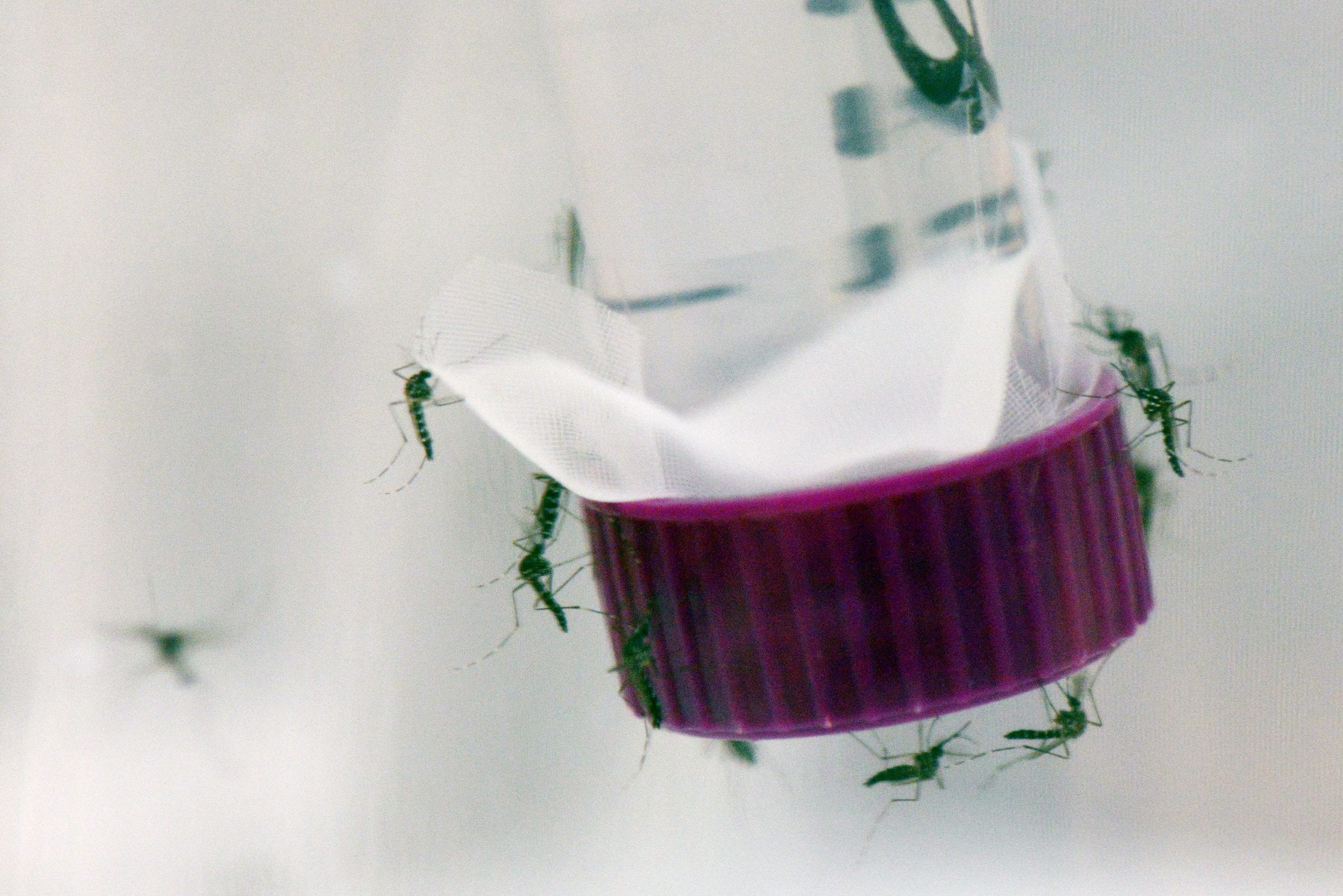When Lana Del Rey sang of “Summertime Sadnessâ€, I'm sure she was singing of summers in Georgia. Living in Athens, there are three things I can expect during the months of May through September: getting caught in a storm without an umbrella, sweating at 9 am walking into work, and being covered in hundreds of mosquito bites despite multiple coats of bug spray. While wet hair or sweaty clothes are just minor annoyances, those itchy, red bumps could come with major consequences. With the coverage of the Zika Virus outbreak in the news for the past year, more and more people are becoming aware of the potential dangers associated with mosquito bites.

The impact of the Zika Virus is devastating both medically and financially. In addition to causing severe birth defects in newborns, it costs the world an estimated 3.5 billion dollars. The Zika virus is mainly spread with the help of the Aedes Aegypti mosquito—the female takes up blood containing the virus from an infected person and transmits the virus to the next person it feeds on. While the impact of the disease so far has been felt mostly in Latin America and the Caribbean, Aedes Aegypti mosquitoes are present in the Southeastern United States, and even as far north as New Jersey. The presence of Aedes Aegypti means that the disease has the potential to spread wherever the mosquitoes are found. In fact, we have already seen mosquitos transmit the disease in Florida and Texas. Even worse, Zika is not the only disease these mosquitos spread. They also transmit other viral diseases such as Dengue, Chikungunya, and yellow fever. All of these diseases have the potential to be spread in the United States, and only yellow fever has a vaccine.
Without vaccines, controlling mosquitos is the best way to avoid contracting the diseases they carry. Mosquito control includes limiting standing water where mosquitoes like to lay eggs, installing and maintaining window screens, and spraying insecticides. Implementing these measures may be easier said than done: Aedes Aegypti can breed in areas as small as soda cans, and intact window screens are often a luxury for people in low income areas where Zika is more likely to spread. Furthermore, insecticides have been shown to lose their effectiveness over time as mosquitoes develop resistance to them.
Instead, the answer to the mosquito problem may literally lie within the mosquitoes themselves. The British Company Oxitec has developed a system to control Aedes Aegypti in the wild using a technique called “Release of Insects with Dominant Lethality,†or RIDL for short. It is based off the Sterile Insect technique (SIT), which was used to eradicate pests such as the New World Screw Worm (you've probably never heard of it thanks to SIT). The sterile insect technique involves sterilizing male mosquitos by irradiation. The sterile males are then released into the wild. When wild female mosquitoes mate with sterile males, the eggs they produce don't hatch. Although SIT has been successfully used, the sterilized male mosquitoes aren't as healthy as wild male mosquitos and are therefore less attractive to the wild female mosquitoes. Given the choice, wild females will mate with the healthier-looking wild males instead, and keep producing offspring capable of spreading diseases.

RIDL takes the Sterile Insect technique one step further by genetically modifying male mosquitos, ensuring any female they mate with will produce offspring that don't survive. Instead of sterilizing adult male mosquitos directly like in SIT, a lethal gene is inserted into a mosquito embryo. The mosquito embryos grow into healthy adults in the lab because they are continuously fed tetracycline, an antibiotic that keeps the lethal gene turned off. However, when RIDL male mosquitoes are released into the wild to mate with wild females, the offspring inherit the lethal gene. Without access to tetracycline, this next generation dies before they can transmit diseases. These genetically modified mosquitoes pose no threat to the environment because they are a genetic dead end—as Lana Del Rey might say, they are “Born to Die.â€
The RIDL technique has been successful in reducing the Aedes Aegypti population by up to 95% in field trials in Brazil and the Cayman Islands. But if RIDL has the potential for success why haven't we heard more about it? The short answer is that Genetically Modified Organism has a three-letter abbreviation that has turned into a four letter word. A petition against the release of the Oxitec mosquitoes reached over 150,000 signatures. Despite the Food and Drug Administration's finding that Oxitec mosquitoes possess no significant threat to humans, animals, or the environment, voters in the Florida Keys, the site of the proposed United States field trial, were split on the decision to release mosquitos, leaving the fate of the trial unclear.
In order for the use of Oxitec mosquitoes to ever become a reality, public engagement and education is needed to reduce the fears and misunderstanding and highlight the benefits of genetically modified organisms. Limiting the Aedes Aegypti population may not guarantee that we won’t be bit by mosquitos in the summer, but it may greatly reduce the chances of contracting a disease like Zika through the bite.
About the Author
 Megan Prescott is a Ph.D candidate in the Department of Microbiology at the University of Georgia. She dedicates her time outside the lab to serving as President of UGA's Women in Science (WiSci) organization, volunteering with the Junior League of Athens, and continuously watching The Office on Netflix. She counts each day she leaves the lab without giving herself TB as a success. More from Megan Prescott. Megan Prescott is a Ph.D candidate in the Department of Microbiology at the University of Georgia. She dedicates her time outside the lab to serving as President of UGA's Women in Science (WiSci) organization, volunteering with the Junior League of Athens, and continuously watching The Office on Netflix. She counts each day she leaves the lab without giving herself TB as a success. More from Megan Prescott. |
About the Author
- athenssciencecafehttps://athensscienceobserver.com/author/athenssciencecafe/April 17, 2020
- athenssciencecafehttps://athensscienceobserver.com/author/athenssciencecafe/April 12, 2020
- athenssciencecafehttps://athensscienceobserver.com/author/athenssciencecafe/April 3, 2020
- athenssciencecafehttps://athensscienceobserver.com/author/athenssciencecafe/March 30, 2020







